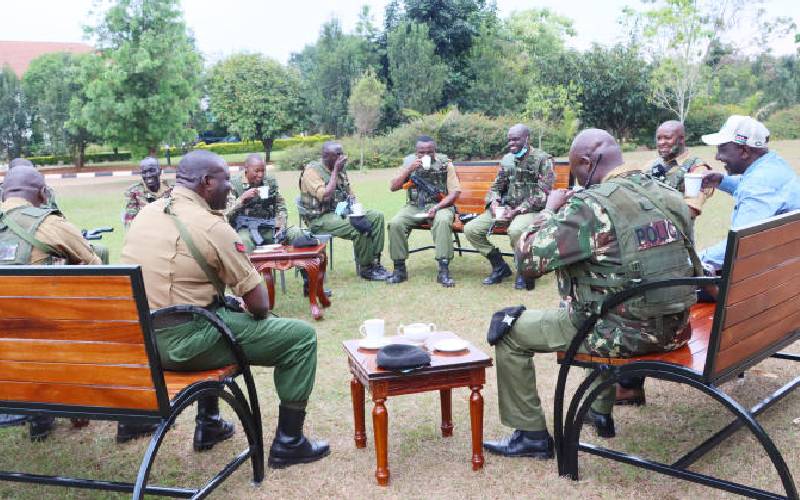×
The Standard e-Paper
Join Thousands Daily

Deputy President William Ruto shares a cup of tea with the new security team at his official residence in Karen, Nairobi on August 30, 2021. [DPPS, Standard]
Deputy President William Ruto is facing strong political headwinds, each time seemingly playing the windmill, absorbing and using them to his favour.